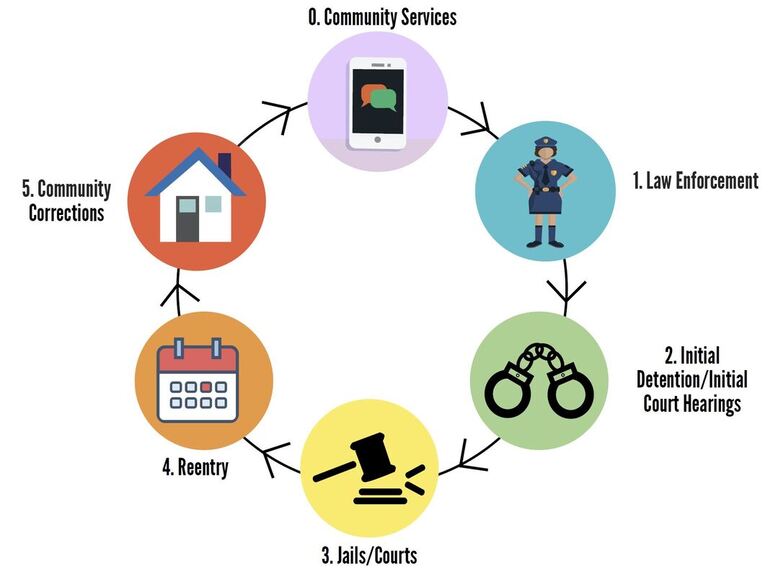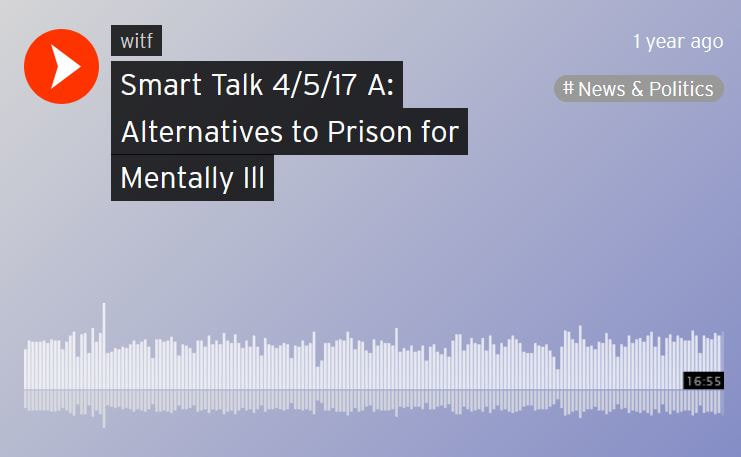Understanding the prevalence of justice involvement
Millions of individuals living with mental illnesses are in jail or prison each year in the United States. Often their involvement with the criminal justice system begins with low-level offenses like improperly crossing the street, disorderly conduct, or trespassing. Research suggests that states with less access to mental health care tend to have more adults in the criminal justice system. In fact, six out of ten states with the least access to mental health care also have the highest rates of incarceration.
Learn more from MHA about incarceration and mental illness
Learn more from MHA about incarceration and mental illness
Hear from the Stepping Up initiative about the widespread incarceration of people with mental illnesses
What can be done to reduce unnecessary incarceration?
The Sequential Intercept Model, or SIM, is a promising approach for diverting people with behavioral health disorders from the criminal justice system. It is based on the idea that movement through the system follows a logical sequence, with multiple points to intercept and divert people into mental health and substance abuse services instead.
Watch a webinar explaining the Sequential Intercept Model, including actions to take and services to offer at each intercept
How are counties and states using SIM for jail diversion and to promote alternative justice interventions?
Many counties and states are applying SIM to create partnerships and build infrastructure to support jail diversion. States also are working to reduce trauma-inducing approaches such as prolonged solitary confinement and repeated restraint. Read on about what is working at the county and state levels.
Listen to a podcast about one county's planned approach to jail diversion using data and the Stepping Up initiative based on SIM
Learn how several counties developed their own unique SIM maps to target resources effectively
Views expressed on the Academy for Policymakers web site do not necessarily represent those of our Center or any federal agency. Our mission is to share the latest policy information and the perspectives of a variety of stakeholders without endorsement.

